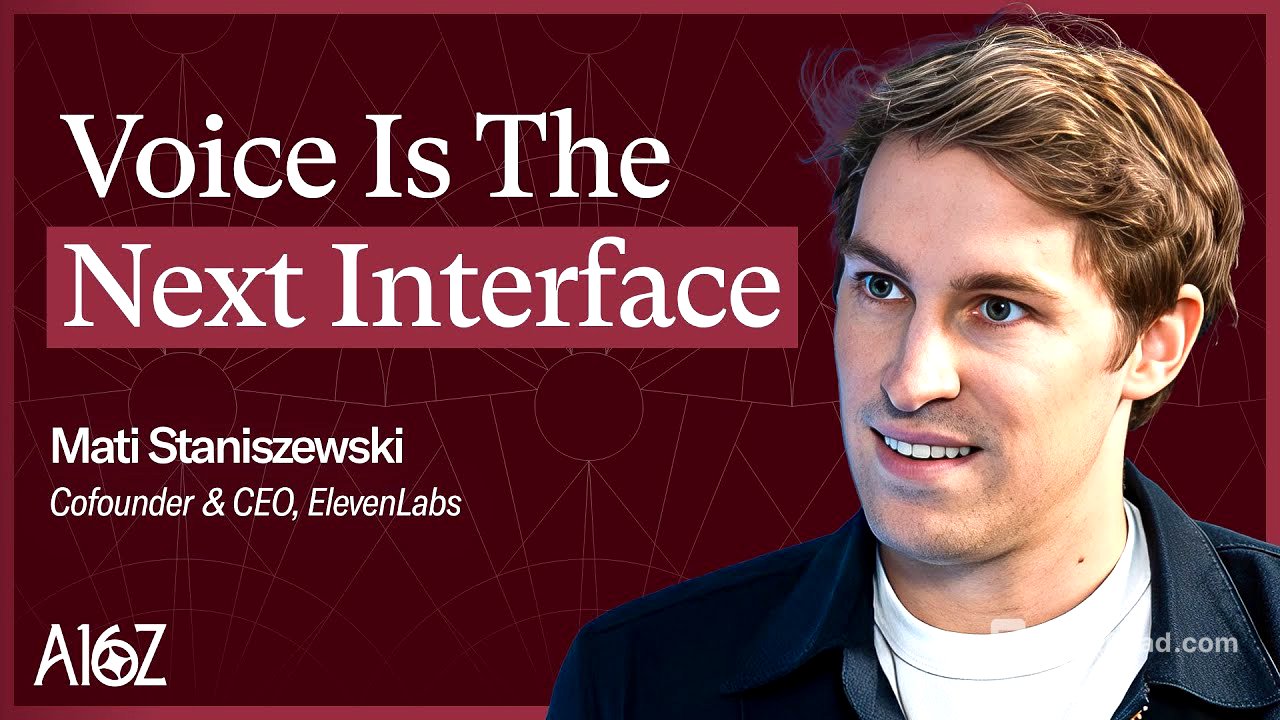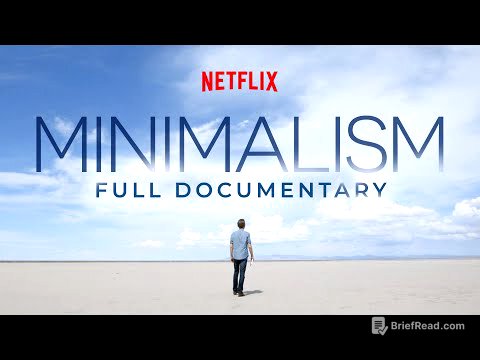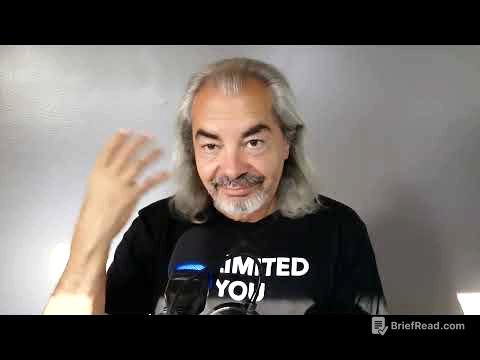TLDR;
Maddie, the co-founder and CEO of 11 Labs, shares insights on maintaining speed and quality in product development, building a global team, adapting to the creative industry's adoption of AI, and transitioning from a creator-first to an enterprise adoption model. She emphasizes the importance of small, independent teams, balancing research with product launches, and understanding the cultural nuances of different regions. Maddie also discusses the challenges and lessons learned in hiring, sales, and scaling, highlighting the need for risk-tolerant talent and aligning incentive structures with company strategy.
- Maintaining speed and quality through small, independent teams.
- Balancing research with product launches by setting timelines.
- Adapting to the creative industry's adoption of AI through collaboration and understanding.
- Transitioning from creator-first to enterprise adoption by investing in orchestration and infrastructure.
- Aligning incentive structures with company strategy to drive desired behaviors.
Intro [0:00]
Maddie is introduced as the co-founder and CEO of 11 Labs, a company that started with voices and expanded into orchestration of voice agents and a fully licensed music model. The discussion will the execution of 11 Labs, product launches, new lines and models, text-to-speech, speech-to-text, music, sound effects, and the AI agent platform. The main question is how 11 Labs maintains both speed and quality with such an expensive product roadmap.
Lucky Number Eleven [2:20]
Maddie jokes about the number 11, noting that when a16z partnered with 11 Labs, the infrastructure team consisted of three people, and now it's 11. She also points out that the companies at the event raised $66 billion in total funding, highlighting the prevalence of the number 11.
Early Research and Product Work with Piotr [2:50]
Maddie credits her co-founder, Piotr, as the research brain behind many of 11 Labs' models. She emphasizes the importance of assembling a team of incredible researchers in the voice space to create a text-to-speech model that understands context and emotion. The goal was to capture voice characteristics, including style, age, gender, and dialect, all in one model, which has since expanded to speech-to-text and music.
Shipping quickly with small, high ownership independent teams [3:35]
To ship quickly in the fast-paced AI space, 11 Labs uses small teams. There are roughly 20 product teams, each with five to ten people, that have full independence to ship products. While this can lead to some duplication or uneven progress, the high level of ownership within each team allows for extremely quick movement. The work is divided into creative platforms for narrations and voiceovers, and agent platforms for conversational experiences.
Balancing research and product launches [4:40]
Balancing model research with product launches is a challenge. Maddie shares an example where they resisted adding a speed slider for voices, preferring to solve it at the research level. After nine months of research, they implemented a simple product solution. Now, if research is expected to take more than three months, the product team is free to add models or extensions. The internal research team provides guidance on short-term and long-term initiatives, allowing product teams to close gaps while waiting for research breakthroughs.
A Remote-first approach: Meeting talent where they are [6:50]
11 Labs started as a remote-first company, founded between Warsaw and London. Maddie believes the company wouldn't exist if they hadn't started in Europe, referencing the poor dubbing quality in Polish movies as initial motivation. To find the best talent, they hired globally, avoiding limitations to San Francisco or the West Coast. They also looked beyond traditional hiring methods, hiring a person with an incredible open-source text-to-speech model who was working in a call center. As the company scaled, they introduced hubs in London, Warsaw, and San Francisco to provide a space for new employees to immerse themselves in the company culture.
US vs Europe work cultures [10:01]
Maddie notes a cultural difference between the US and Europe, where people in the US are more eager to talk about work at social events. In Europe, it's less common, but there are pockets of motivated people who lack the companies to express their passion. She feels their European team is the most motivated and passionate.
Removing titles and flat leadership layers [10:40]
11 Labs removed titles a year ago, which Maddie believes is a common practice in AI companies. With small teams of five to ten people, the goal is to make it clear that anyone can have an impact, regardless of tenure. The external-facing teams are simply "go-to-market teams," without further positioning. This allows partners and customers to know they are getting the best people. The structure includes leads for research, creative work, agents, go-to-market, and operations, with flat, small teams underneath. The leads are responsible for managing complexity and suggesting connections between teams.
The creative industry’s adoption of AI [13:35]
Maddie discusses the creative industry's increasing adoption of AI tools, a shift from initial resistance. 11 Labs has worked with the creative industries from the beginning, including marketplace payouts. To adapt, they spend time understanding the industry's priorities and incentives. Working with figures like Jared has helped them learn which parts of the production process can benefit from AI and which should remain untouched.
The Voice Marketplace: Empowering creators to earn [15:10]
11 Labs launched a voice marketplace where creators can share their voices and earn money. Today, they have almost 10,000 voices and have paid $10 million back to the community. One of their first voices, a deep Spanish voice, became popular in English-speaking countries due to its unique sound. The goal is to bring the industry together to disrupt together, rather than just disrupt.
Challenges in licensing and 18-month negotiation process [16:43]
11 Labs has worked with labels like Merlin and Cobalt to bring their music into the music model in a licensed way, allowing for commercially safe music generation. This process took 18 months to negotiate, with the key being the addition of forcing functions to create urgency. Compromise was essential, and they spent time working with the labels' members to discuss the technology and its future.
Hiring in complex domains [18:05]
For new and complex domains, 11 Labs brings in one or two people with experience in that space, supplemented by consultants for specific conversations. For example, in music, they worked with music lawyers who knew all the players and could bridge the gap between 11 Labs and the labels.
Finding risk-tolerant talent [19:10]
Maddie emphasizes the importance of hiring risk-tolerant individuals who understand commercial business opportunities. She shares a story of struggling to find the right legal counsel, initially hiring people who were either not a good fit or overly risk-averse. They eventually hired someone who understood the risk equation and could serve as a true thought partner.
Transitioning from creator-first to enterprise adoption [20:45]
11 Labs started as a creator brand but has successfully moved into the enterprise space. They received early inbound interest from enterprises and initially resisted hiring salespeople, preferring engineers to handle sales. After a failed experiment, they now invest in a combination of sales and engineering. Working closely with customers has been crucial in understanding their needs and guiding product and research development.
Lessons from hiring the first salespeople [21:48]
Maddie shares a story of Munjal from Hypocratic, who created agents to handle inbound calls and schedule appointments for hospitals. This required combining speech-to-text, LLMs, and text-to-speech, along with integrations and deployment support. 11 Labs now invests in helping with the entire orchestration process, including knowledge base integration and deployment with telephony providers.
Scaling orchestration, long sales cycles and cultural adjustments [23:34]
For enterprise adoption, 11 Labs focuses on building knowledge base integration, deployment with telephony providers, and tools for testing, version control, and monitoring. Security and compliance are also critical. The sales cycle is much longer than with PLG, which initially caused skepticism within the company. It was culturally challenging to keep everyone aligned during the extended wait for results.
Customer choice in adopting early features [26:22]
11 Labs ships products quickly but delineates clearly between alpha and non-alpha versions. Customers and partners can choose whether to access alpha versions, with the understanding that they may not be stable. This choice has been important. Deutsche Telecom, for example, tested early models to create new podcast experiences.
Phases of company growth: product, sales, scaling [27:55]
Maddie reflects on the three phases of company growth: product, sales, and scaling. A recent realization was the importance of incentive structures as the go-to-market team enlarged. In the early days, everyone operated on passion, but as the company grew, incentive structures began to drive behaviors. Commissions are a lagging indicator of strategy, so it's important to align them closely with the desired strategy.
Turning down licensing to a competitor [30:06]
Maddie emphasizes the need to be upfront about strategy, even if it means forgoing commissions. They now explicitly tell their sales teams that if a deal seems wrong, they should come back to leadership. Recently, a foundational competitor wanted to license their models for demos. Although the incentive would have been to sell to them, they declined, and the sales person still received commission. Now it's in the policy so you cannot sell to the foundational model companies.









